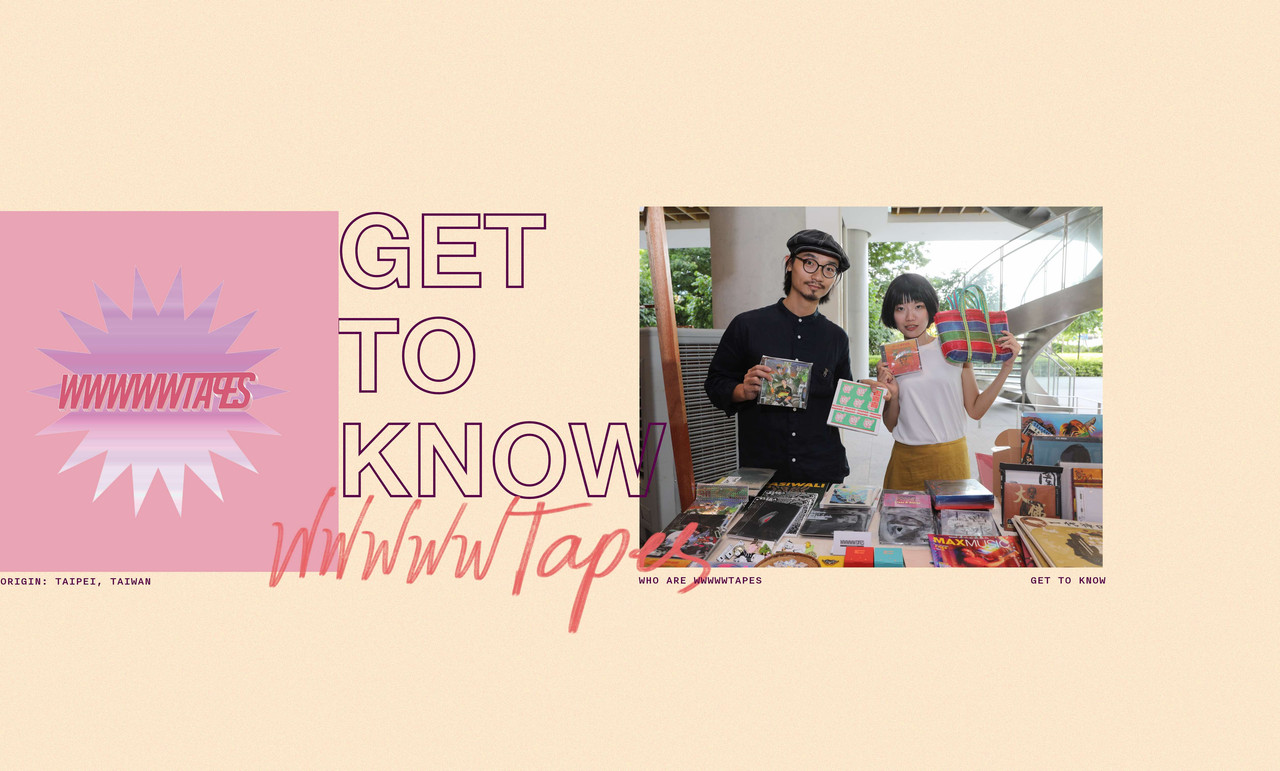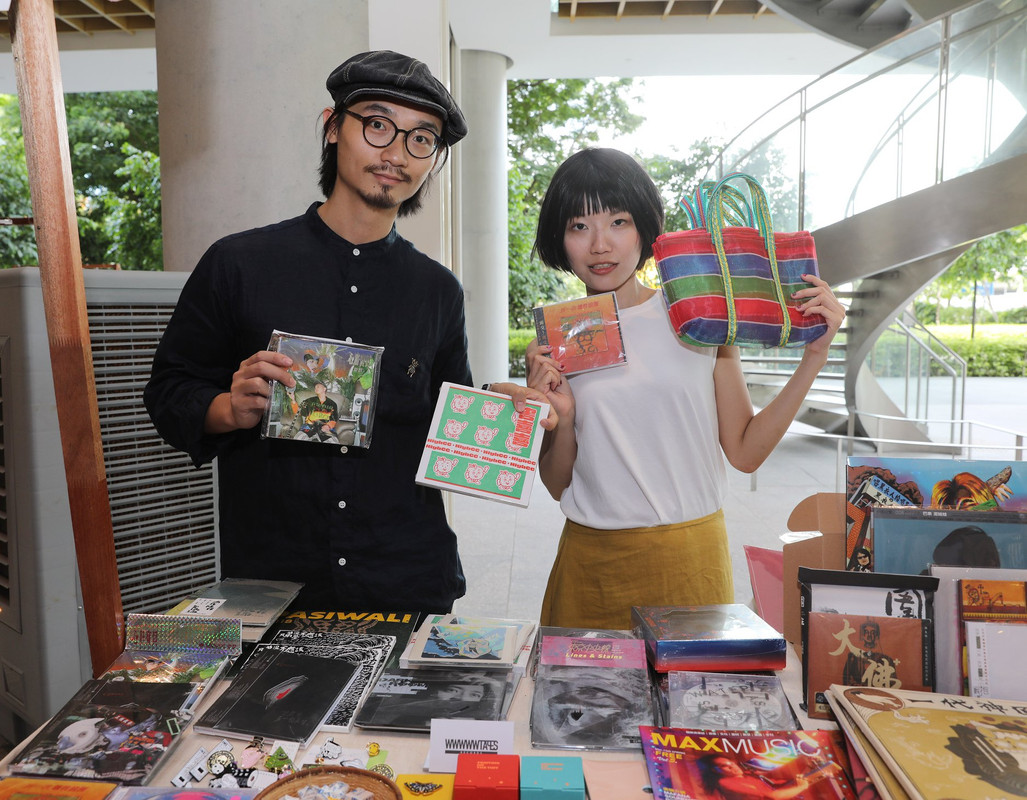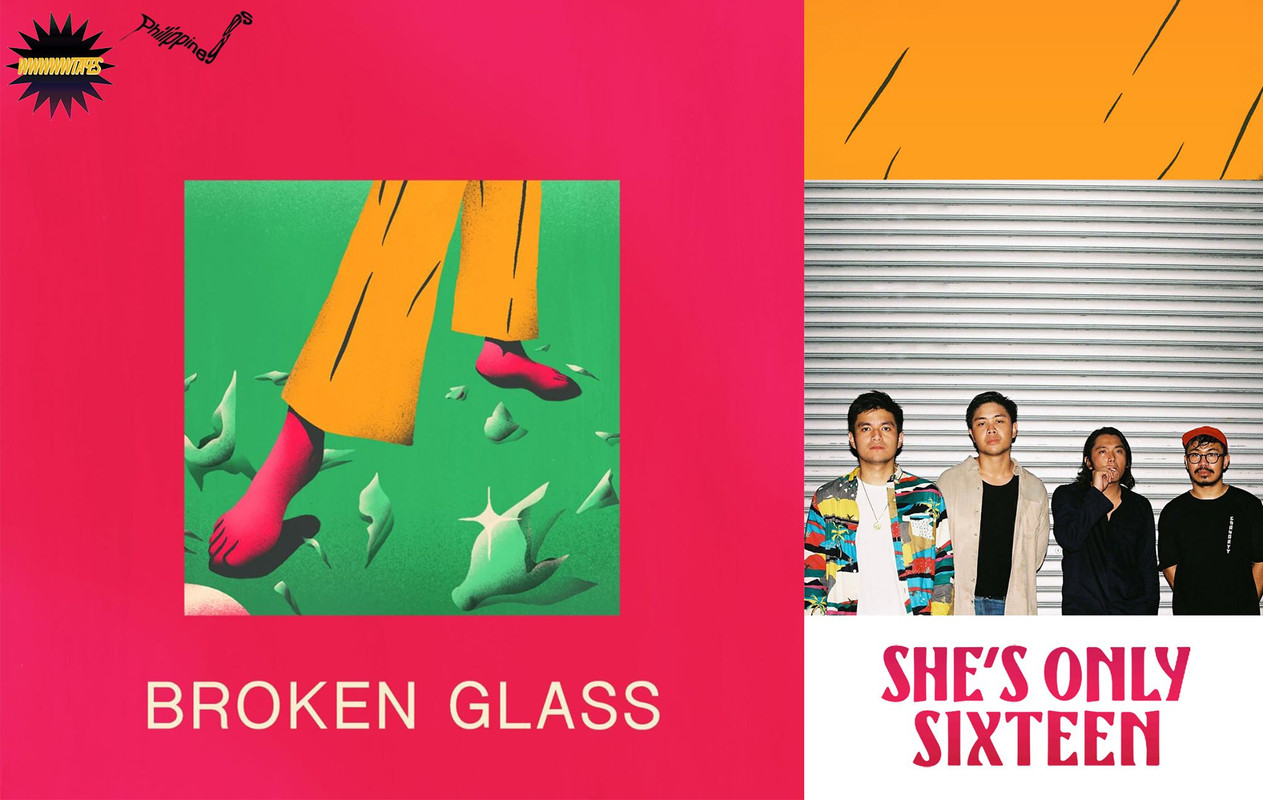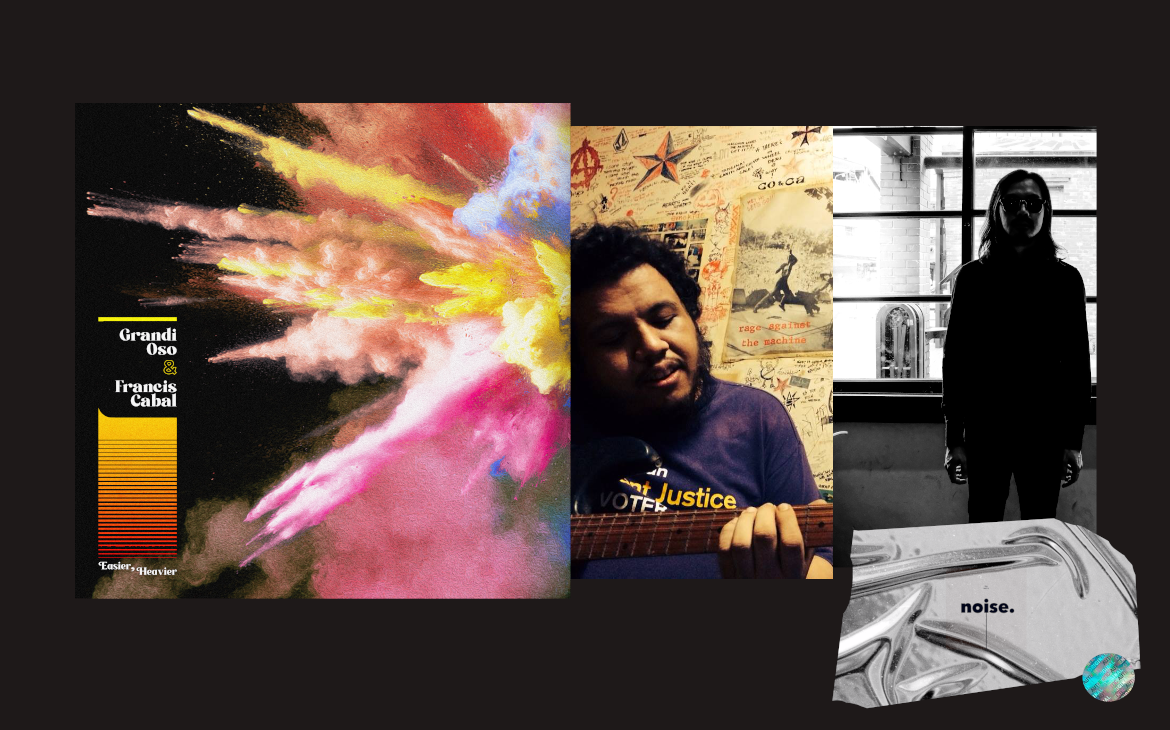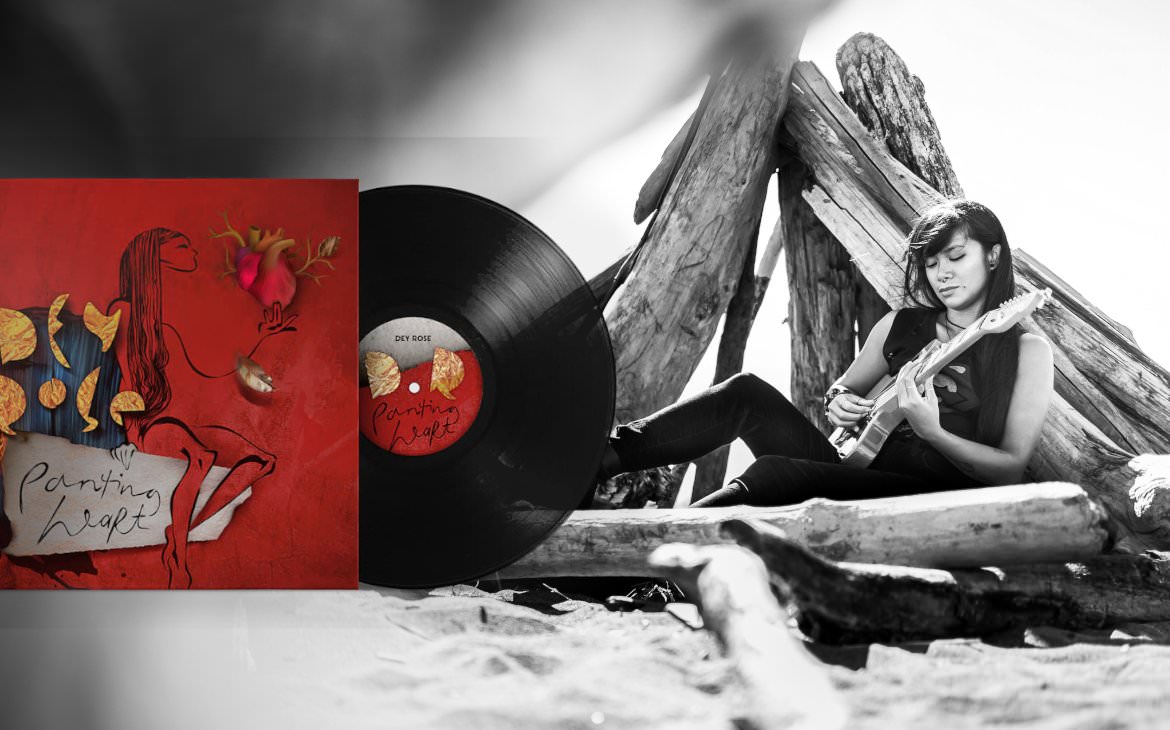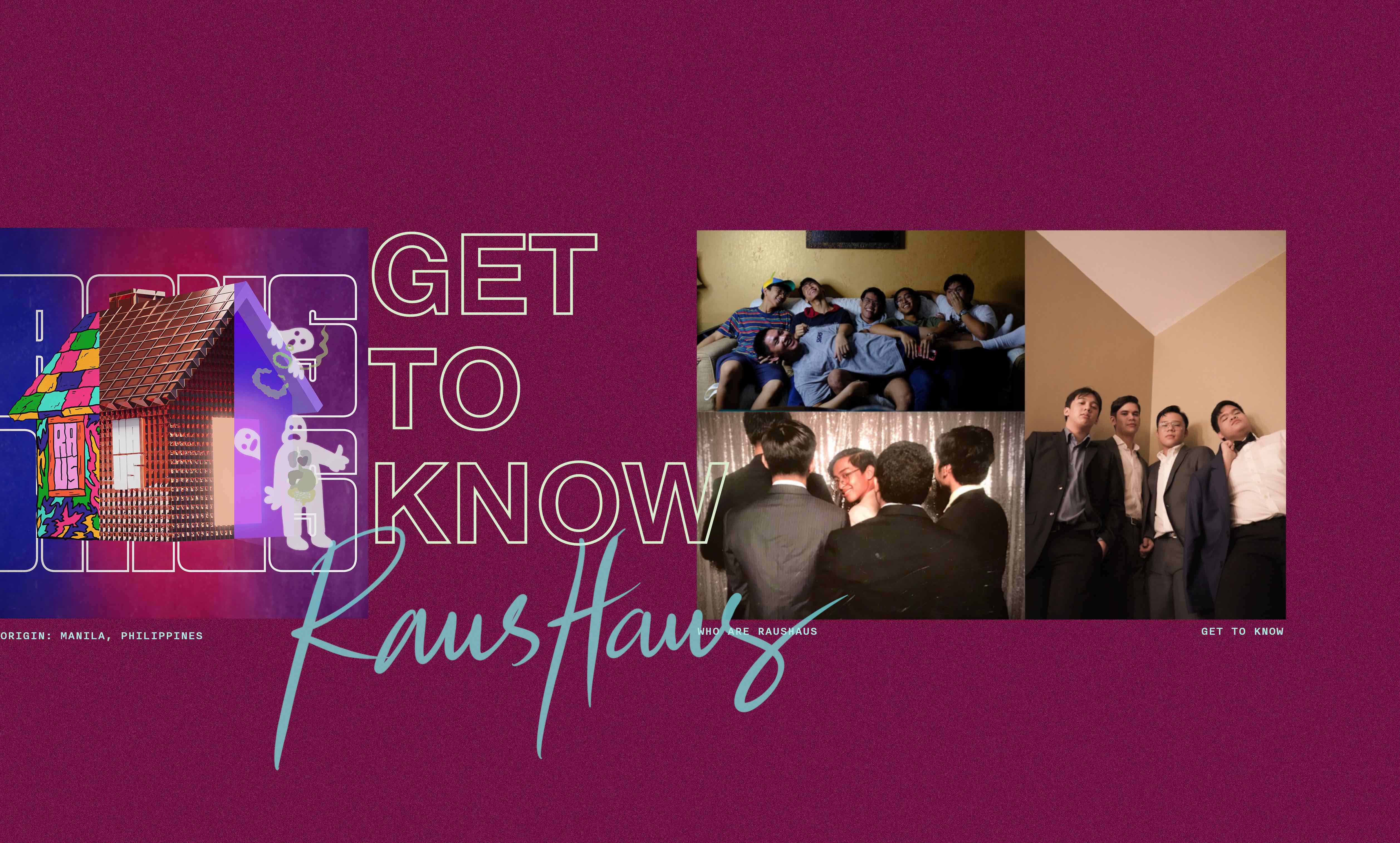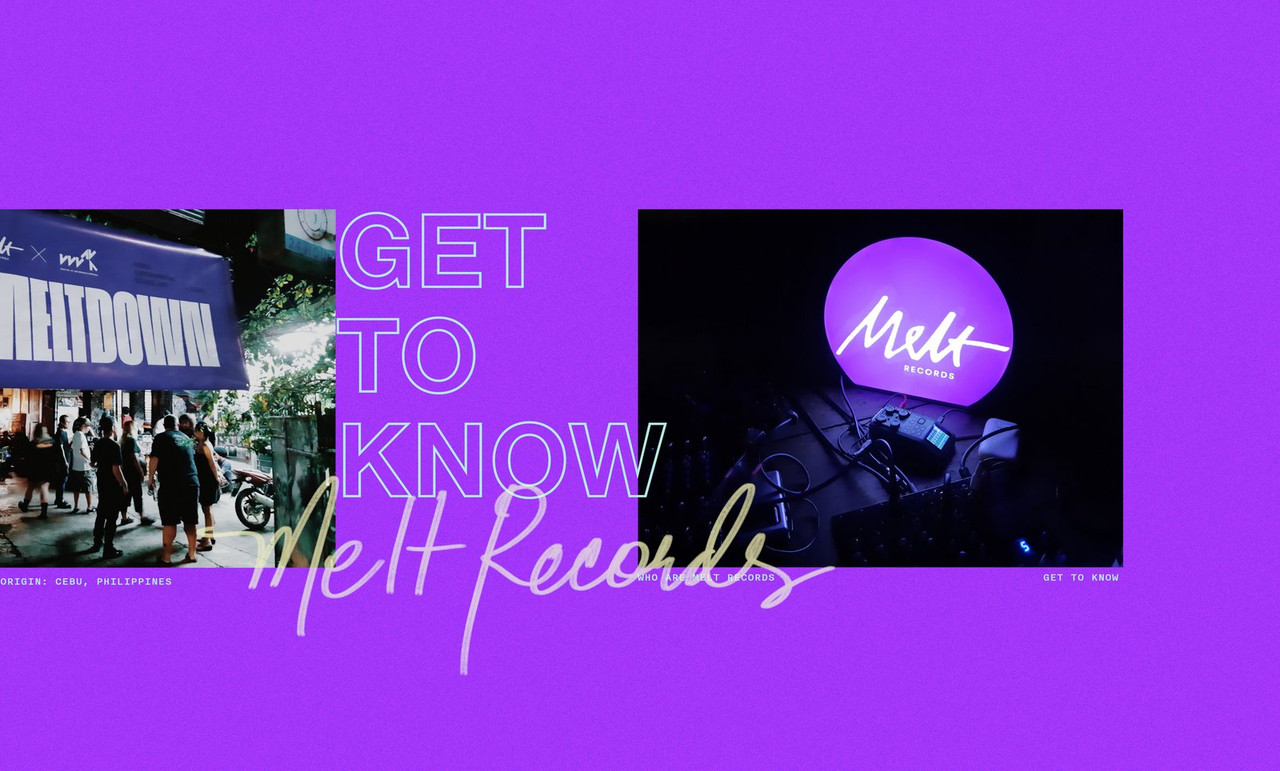“We want to promote Southeast Asian indie music and culture, try some cooperation that breaks the framework, and solve some blind spots that the music industry may have.”
Words and Illustration by MC Galang
All photos courtesy of WWWWWTapes
“I think we might have met each other before at Bangkok Music City last year,” said Zooey Hsieh, founder of Taipei-based indie music solutions agency WWWWWTAPES, when I first connected with her back in May for this long-overdue feature. I was hazy on the details about our first meeting and she was polite enough to remind me. I’ve been meaning to speak to her at LUCfest last year though I was already introduced to her co-worker-slash-teammate John Huang in Bangkok before returning to Tainan for Taiwan’s best annual music showcase and conference festival (and this is an opinion widely shared by many). Pre-pandemic memories seem and feel far more distant but strangely enduring, albeit with a sting; at least for us still stuck at home for more than half a year.
The way WWWWWTAPES operates struck me as fascinating: they mostly, if not almost exclusively dedicate their platform promoting Southeast Asian music apart from their own, a rare direction to pursue. Though not unheard of and maybe perhaps from a jaded perspective, we—meaning us in the Southeast—are often used to doing and minding our own business, with little-to-no attention being paid to what’s happening our side of the region. Despite the great successes music labels like 88Rising brought to Indonesian artists like Rich Brian and NIKI—it’s still… mostly Western sensibilities at play, if you get my drift.
This curiosity happened to be reciprocated and shared. Echoing this sentiment of lack of visibility of (and interest in) Southeast Asia’s music was something WWWWWTAPES feels strongly about. Currently, they have a strong, results-oriented focus on promoting Southeast Asian music through collaborations and projects through an open, friendlier approach: more organic and stripped of the stiff corporate-driven industry methodologies. They’re obviously cognizant about the repercussions the latter creates when it comes to making connections: one they’re mindful to encourage, not inhibit.
I spoke with Zooey and John about the origins of WWWWWTAPES (including some of its similarities with our own platform) and delved into an insightful conversation about the deeper relations between Taiwan and the region and the way the music industry works in general.
This interview has been lightly edited for clarity.
Can you briefly tell us your history? How did WWWWWTAPES first come about—founders, location, initial personnel—and what were your initial goals and projects, programs, and activities at the time?
WWWWWTAPES was founded in 2018 and is currently based in Taipei. At first, it was a platform for Zooey Hsieh (熊也) to share her favorite Southeast Asian music and culture to the Taiwanese audience for fun. Later, John Huang (薑黃), a promoter/tour manager in Southeast Asia, joined the team as a core member.
Originally, WWWWWTAPES wrote an introduction to the Southeast Asian artists in Chinese on social media and music magazines, trying to promote good foreign indie music in Taiwan. Later on, the agency started to organize music performances, [facilitate] distribution, assist both local and international bands to tour or participate in music festivals, provide planning consultation, and so on.
In Asian culture, there is a word called “all do shop”or “Everything House” (萬事屋) . You can entrust this cottage to do a lot of things and the cottage will gather people with the same concept, just like a community center. WWWWWTAPES was born with this concept. Today, we are a team of promoter, agent, tour manager, writer , designer, planner, and developer, with the goal of creating a friendly music solution organization.
John Huang: We are those kind of people who don’t like frames. Although we operate under the system of the music industry, we still keep trying to “think outside the box.” A few years ago, I began to cooperate with travel agencies and Taiwan’s tourism bureau under a coincidence, and found that tour managers, agents, and promoters are related to the tourism industry and media operations on many levels, and in some ways of thinking and cross-domain cooperation methods.
The core is fun, full of sincerity, and love. I think that under those principles, there are basically no restrictions and people can be closely connected to each other. After knowing Zooey and had some discussions, I decided to join and help create this flexible organization to try some fun music projects, promote Southeast Asian indie music and culture, try some cooperation that breaks the framework, and solve some blind spots that the music industry may have, among others.
The simple description is a bit like where we exert our imagination, and we also welcome everyone to come in with imagination to play and discuss together. In my mind, it is also a bit like the so-called conversation de salon in French, and a little bit of the spirit of the ancient Athens Democratic Parliament that everyone can give a speech.
In Asian culture, there is a word called “all do shop” or “Everything House” (萬事屋). You can entrust this cottage to do a lot of things and the cottage will gather people with the same concept, just like a community center. WWWWWTAPES was born with this concept.
How would you describe to us the Taiwanese independent music scene when you were first starting out and how do you compare it to the present? What are the most significant changes and developments, especially in these areas: government support, community support, audience base, music spaces (venues), music styles, cultural significance of the independent music industry (locally and internationally), music export, and sustainability of music careers?
Zooey Hsieh: Fortunately, the Taiwan government attaches more and more importance to arts and cultural exchanges in these years, especially during the tenure of Minister of Culture Li-Chiun Cheng (鄭麗君), and put forward many policies that are friendly to music workers. Today, Taiwanese musicians can obtain government subsidies through applications, including the distribution of recordings and touring performances. This has prompted the importance of the status of Taiwanese musicians in recent years.
When people think that they can survive in music industry, more and more practitioners will join to promote the progress of the music environment. Interestingly, as we know, around ten years ago, most of mass media had no interest in indie artists. But now, people are turning their attention to local indie creators. Young people can even sing the music of indie bands on KTV (karaoke shop is an important culture for Taiwanese to connect with their friends). Even though there are many free music festivals in Taiwan, more and more people are willing to spend money to watch live band gigs.
John: I want to say one thing, we often mention that WWWWWTAPES is an organization that mainly promotes the indie music culture of Southeast Asia in Taiwan. As far as I know, before 2015, Taiwan’s indie music community paid less attention to Southeast Asian music. Although metal-loving organizations invited a Thai metal band into the festival lineup before; generally speaking, it is [still] within the Taiwan music scene.
People’s knowledge of indie music in Southeast Asia is still very limited. There are few reports or columns in the media, no much academic research is initiated, and there are not too many voices about Southeast Asia music on radio stations or podcast, YouTube, and other channels in Taiwan. Most music communities are still inertial to the local music of Taiwan and the content of China, Hong Kong, and Macao (after all, the language is almost the same); there are many people who specifically introduce Japanese music content. Of course, some people have introduced European and American indie music for a long time, and Korean indie has gradually been received.
In the music culture content of the above-mentioned countries, there is a stable growth of communities support, and the genre of music that is loved is not particularly limited. Taiwan’s music venues are most dense in Taipei, and there are some professional venues that support indie music in the central, southern, and eastern parts. However, indie music in Southeast Asia has rarely appeared in these venues before.
We noticed that someone needed to try to build bridges between Taiwan and Southeast Asia indie music, and we also decided to start trying it. Taiwan promoted the “New Southbound Policy” after President Tsai Ing-wen took office in 2016 and began to support the import of Southeast Asian music in cultural policies, as well as exported Taiwanese music to Southeast Asia. Slowly, Taiwan and Southeast Asia have been paying more and more attention and exchanges in the past two years.
The more you understand Southeast Asia, the more you may understand Taiwan.
There is a word in the field of biology called “biodiversity.” Broadly defined, it refers to a variety of life interdependent on complex, close and fragile relationships, living in different forms of humanities and natural systems; that is, people and all living things coexist in the earth’s biosphere. The work of biodiversity is one of the major global issues in the 21st century, and it is also the basis of human sustainable development.
Somehow, I often feel that indie music is a bit similar.
Indie is organic. It should grow naturally, freely, and sincerely, showing the diversity and richness of culture, no matter what kind of soil they are in. And this is also what I think is the importance of indie music in culture. It is also one of the contents that is worth exporting to other countries to make people understand the cultural characteristics. It is also an important thing to maintain the flexibility and sustainability of culture.
Taiwan is geographically closer to Southeast Asia, and humanities and historical studies have found that Taiwan is one of the origins of the “Austronesian languages.” The more you understand Southeast Asia, the more you may understand Taiwan. We hope that Taiwan and Southeast Asia can embrace and hold hands. At least how about starting with indie music? We’re proceeding with such a mood to move forward.
Indie is organic. It should grow naturally, freely, and sincerely, showing the diversity and richness of culture, no matter what kind of soil they are in. And this is also what I think is the importance of indie music in culture. It is also one of the contents that is worth exporting to other countries to make people understand the cultural characteristics.
What do you think is the role of a music solutions agency for the independent musician in Taiwan. What areas do you seek to address?
Zooey: Let talented and potential artists be seen by the market and help them earn enough income to live and create freely. This is what we want to achieve. Our expertise is to connect resources to help each artist find a marketing and promotion model that suits themselves.
John: Like I said, I believe we can make some ways about cross-domain cooperation methods for indie music and indie artists. And do it with the core [of WWWWWTAPES]: fun, full of sincerity, and love.

Do you cater to all of Taiwan or do you have a specific, location-based clientele? Can you share with us the benefits and challenges of working with musicians in different parts of Taiwan? Does each areas pose uniquely different challenges (different cultures, lifestyles), or is it feasible to use a single approach? How so?
Zooey: I don’t think the same method or model is suitable for all musicians. We like to create different methods according to different artists. Just like tailor-made suits, through frequent contact and getting along with each other. After understanding each other, [we] try to find a suitable marketing method and user group. Taiwan is not a big place, but there are some interesting phenomena, such as: Taipei people love to walk, [so] the performance time is always late; Keelung people have a special feeling for the harbor; Taichung has many active metal music communities; Tainan people add sugar to any kind of food (LOL); and Taiwanese songs are popular in Kaohsiung, which opened a good performance venue recently. Taiwan is a small but good place, we hope to bring international music and culture into Taiwan through two-way development, and also bring local Taiwanese music to the world.

The 2018 LUCFest program shares estimated walking time with some *interesting* explanation in speed variation.
When working with an artist, we don’t want to make a decision based on their nationality or race. We prefer to focus on their personality traits and music atmosphere, even when treating local artists. We hope the cooperation feels like friends, pleasant and fun.
John: There is an old medical idiom in Taiwan that says, “prescribe the right medicine for an illness.” It means to study a problem to find the right way to solve it, to take appropriate steps. I think this idiom can describe what we’re trying to do. Even it need to take several tries, or some how like psychological counseling, we still keep going.
We like to create different methods according to different artists. Just like tailor-made suits, through frequent contact and getting along with each other.
You mentioned on your Facebook page that you “Focus on digging Independent music and grotesque culture in Southeast Asia.” It’s an interesting focus because though we’re geographically closer, East Asia seems logistically more similar to Taiwan in many ways and has a more established cultural foothold globally than the rest of the continent. What is it about Southeast Asia that appealed to you?
Zooey: Taiwan has very close ties with other Southeast Asian countries on all aspects, including culture and language. The best example of this is probably Taiwan’s aboriginal population, whose culture is deeply interconnected with the traditional cultures of countries like the Philippines, Malaysia, and Indonesia.
But many people here are not aware of this. This is not something we are told in school, and something that was put aside by the nationalist Guomindang government (that took over Taiwan in 1945 from the Japanese at the end of World War II), whose main focus was mainland China. As you might know, Taiwanese have a very complex relationship with China and are increasingly looking to explore and develop broader cultural references with other countries and cultures in the region.
[I] had some chances to visit several countries in Asia, including the Philippines. I felt personally inspired by the cultural life in the cities and scenes I visited. I simply hope to share this inspiration with as many Taiwanese people as possible, thereby helping Taiwan cultivate a more diverse and colorful national identity.
John: Like I mentioned earlier, “The more you understand Southeast Asia, the more you may understand Taiwan” and I believe it. In a way, I think we are family. And I would like know more about our friends through music.
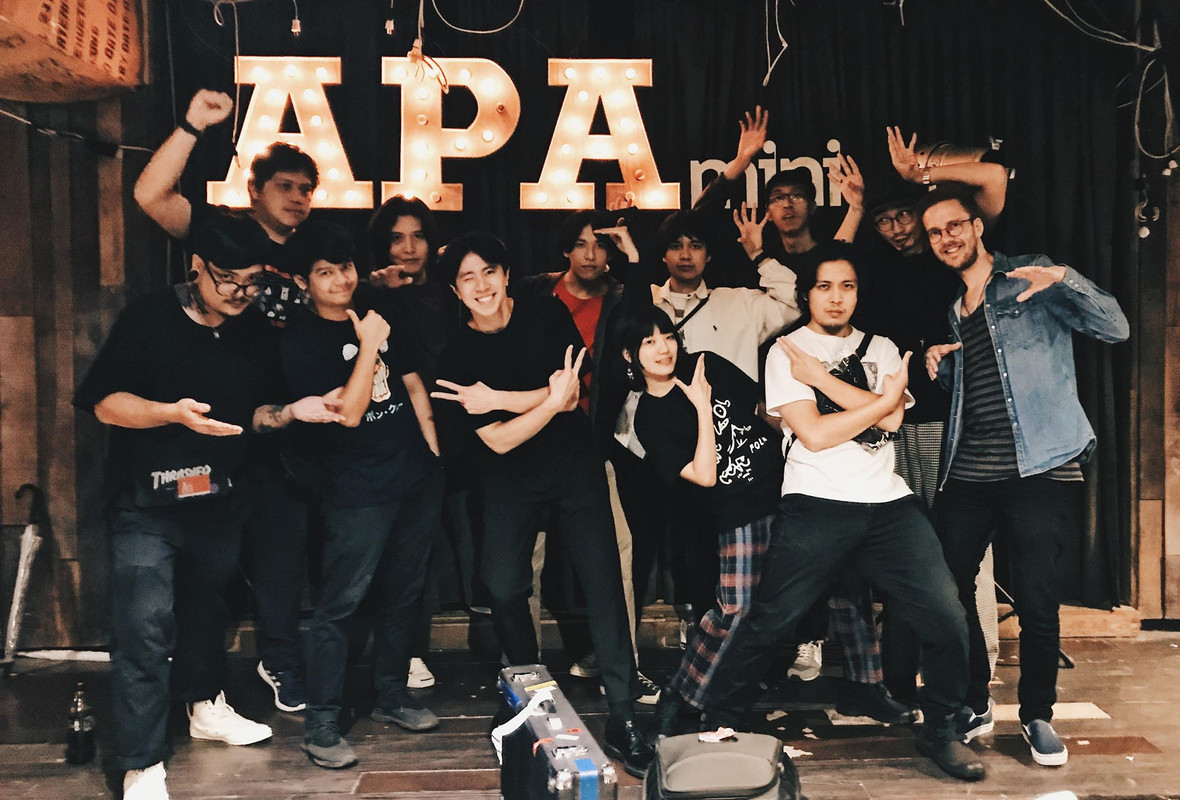
What would you say are the similarities between Taiwan and Southeast Asian countries, especially when it comes to music?
Zooey: In terms of traditional music, we all belong to the “Austronesian Musical Cultural Area.” In this cultural circle, the main body of music is song and dance combined with simple bamboo wind instruments.
After the land nations in Southeast Asia moved south, Indonesia, Malaysia, and Southern Philippines developed the gamelan music system or kulindan [kulintang] music system based on gong group culture and bamboo group culture. There are more than 16 aboriginal ethnic groups in Taiwan from the Austronesian ethnic group. The bamboo pole dance they use is the same as the one in the Philippines [tinikling], and the language is similar to the Malay language.
As for popular music, starting from World War II, there are many Southeast Asian songs in Taiwan, such as Indonesia’s “Bengawan Solo” and Taiwan’s becoming Wenxia(文夏)’s “Mankawan Suro(曼卡灣蘇羅).” There are many similar examples. We are looking for more links like this, I hope to organize and dig it more in the future.
Can you describe to us the Taiwan indie music landscape nowadays?
John: I would say people in the Taiwanese indie music scene are influenced by and focused on the U.S., U.K., Europe, Japan for a long time. Now let us pay more attention in SouthEast Asia.
How do Taiwanese music fans support their local indie artists?
[Aside from] watching live performances and buying CD/vinyl/cassette and merchandise, Taiwanese fans are also very keen to attend music festivals. They like to buy those limited merchandise with special design to support artists when they release a new album or EP. By the way, we are also assisting foreign band to sell CD/vinyl/cassette in Taiwan.
I would say people in the Taiwanese indie music scene are influenced by and focused on the U.S., U.K., Europe, Japan for a long time. Now let us pay more attention in SouthEast Asia.
The Taiwanese government is one of the first to successfully curb the COVID-19 pandemic. How did it first affect your operations and the music scene in general?
From March to May this year, only performances of less than 100 people can be held in Taiwan. We canceled all plans for Taiwanese bands to travel abroad. Due to earlier restrictions on the entry of other nationalities and the ongoing 14-day quarantine regulations, plans for the foreign bands to perform in Taiwan are canceled too. The Taiwanese government has some bailout subsidies for musicians. After the ban was gradually lifted in May, many music festivals have been announced recently and some venues been booked to September by many gigs. Compared with other regions, Taiwan is lucky in this coronavirus pandemic.
At present, how’s the state of the local music industry? How are you adapting (or already adapted) to the safety precautions moving forward, especially when it comes to touring arrangements and any activities or projects that require physical contact/appearance?
People must wear masks to enter a small enclosed space (such as elevators) and take public transportation. In public places, people in Taiwan are quite self-disciplined. Many people wear masks on their own initiative. Audiences are all willing to wash their hands frequently, spray alcohol, and take temperature checks before entering the venue, scan QR code for epidemic prevention, and keep a safe distance. Now these behaviors are into everyone’s life and people get used to it.
Connect with WWWWWTAPES on Facebook, Twitter, and Instagram.

